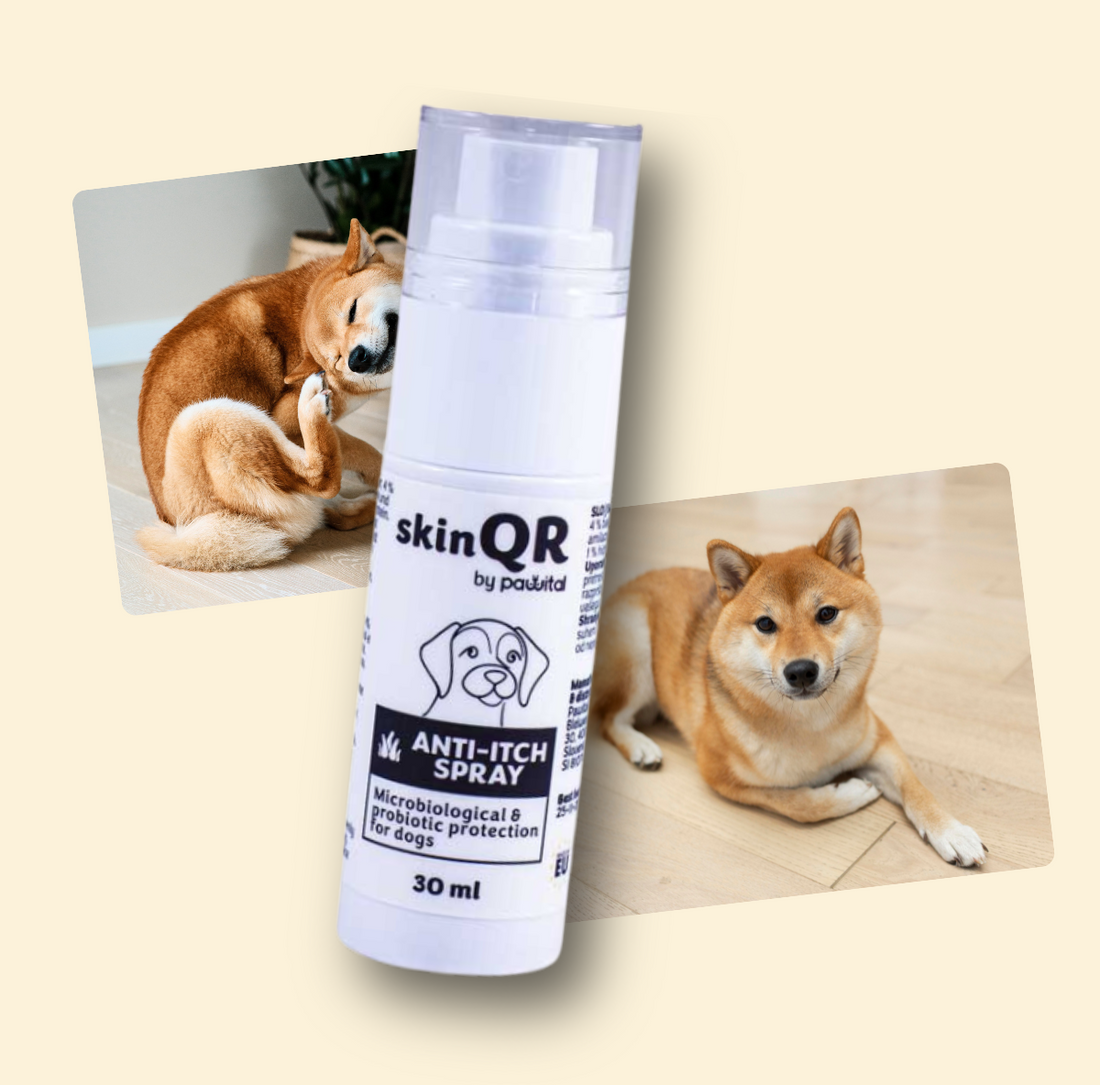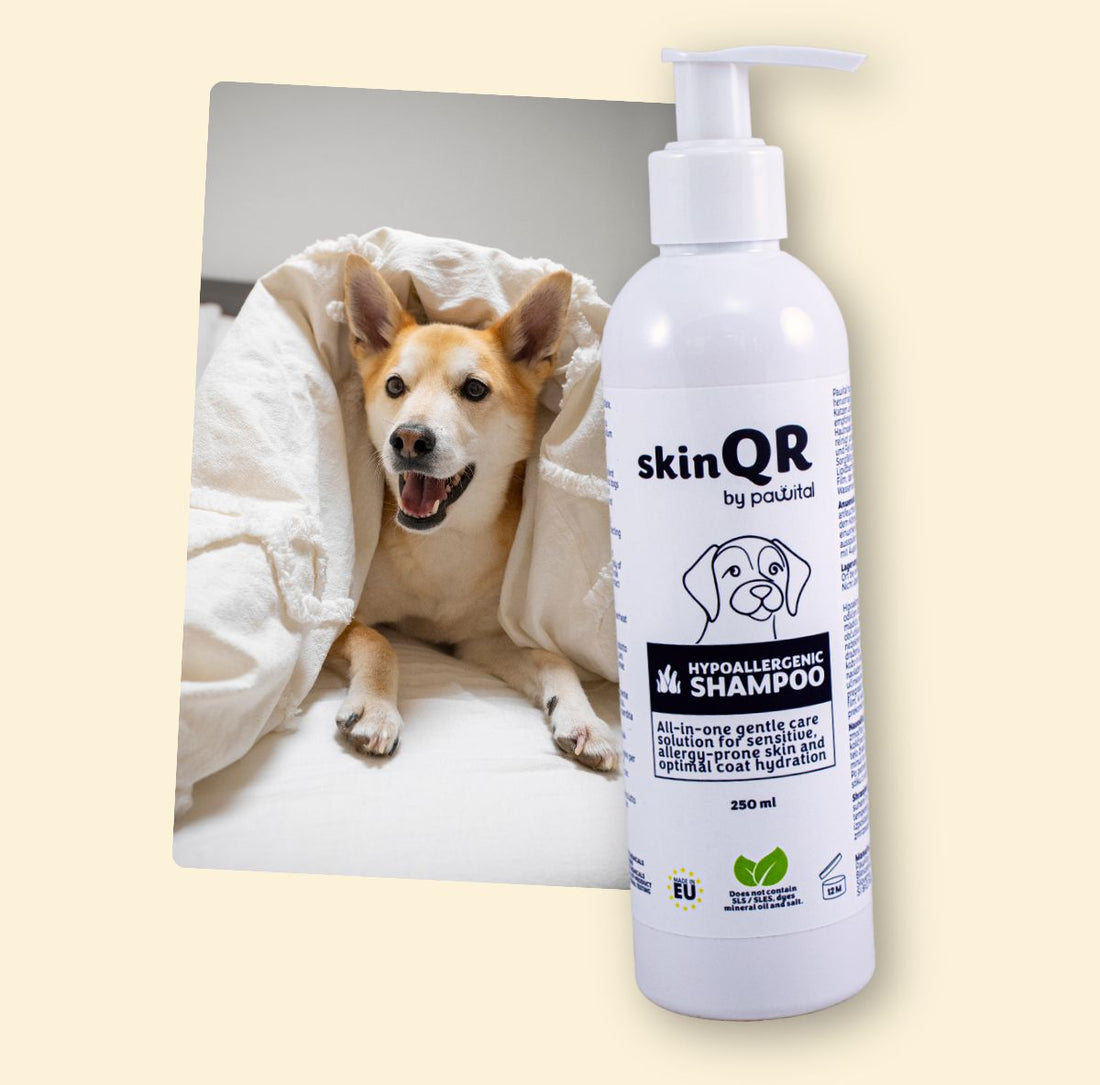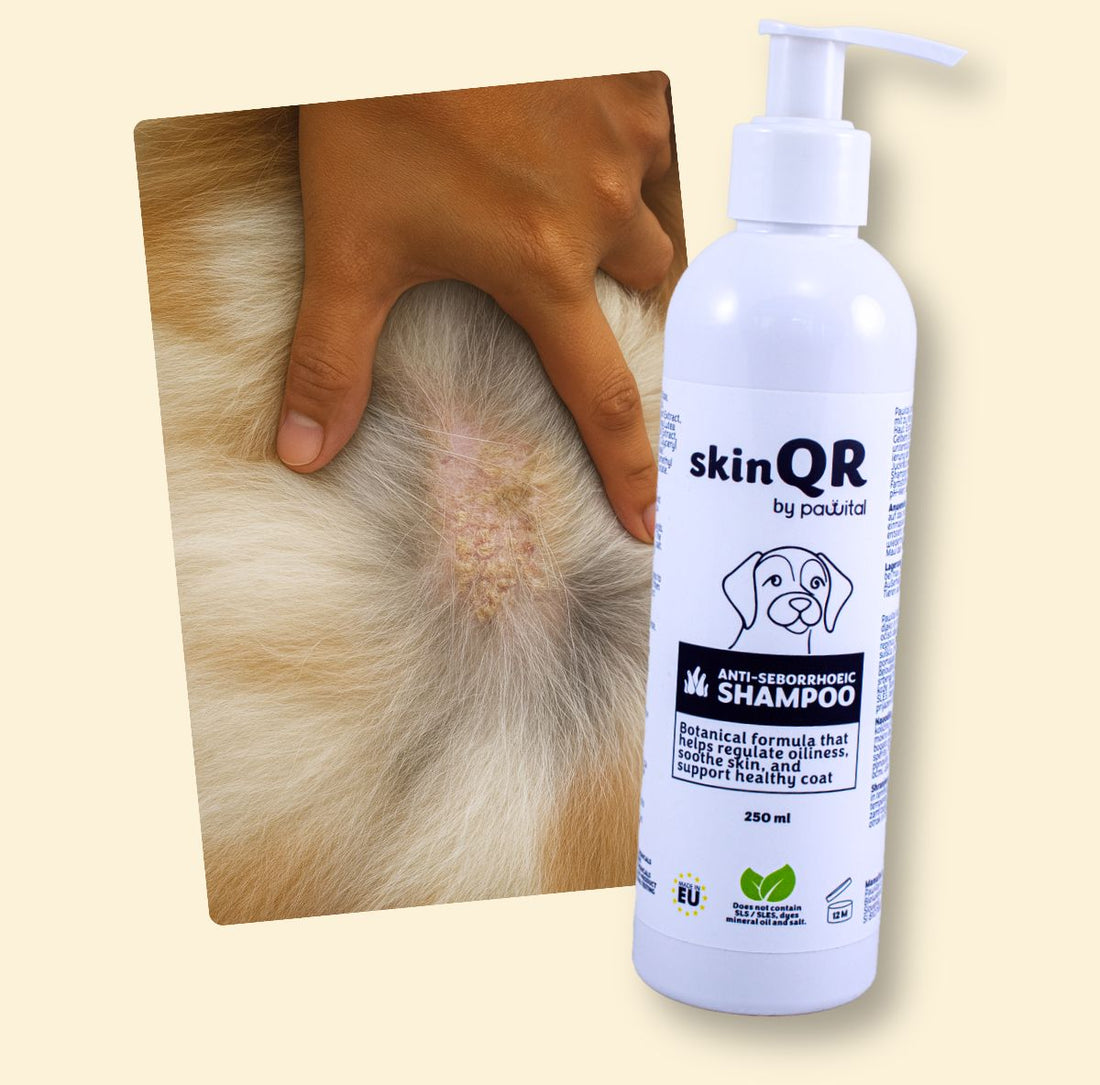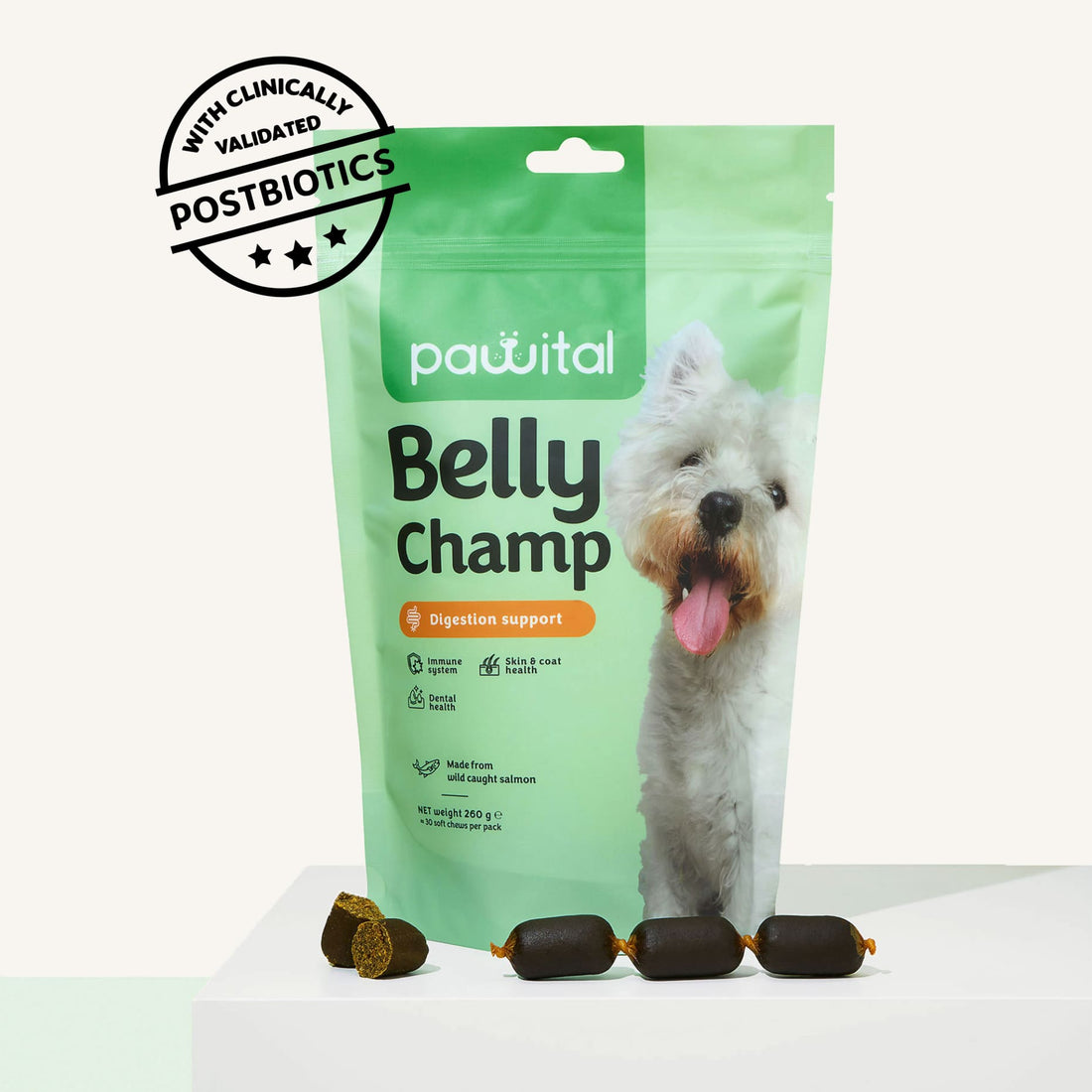How to adapt your dog's diet as they grow older
Tailoring your dog's diet for the golden years

When is a dog considered a senior?
The senior phase of a dog's life varies by breed size. Small breeds enter this period at eight years, medium breeds at seven to eight years, large breeds at five years of age. The rapidness of aging is also influenced by environmental factors, genetics, health status, and nutrition.
A greying muzzle and decreased activity are obvious indicators of aging, but other organs, including the kidneys, immunological system, and digestive system, also undergo subtle alterations.
How does senior dog food differ from adult maintenance food?
Dogs that are older maintain their ability to absorb nutrients, but they lose tolerance for excesses and nutritional shortages. As dogs age, their energy needs decrease. Adjusting their diet to meet their changing nutritional requirements can help mitigate many of the of the effects of aging.

What about active seniors?
Active senior dogs might need a diet that balances between senior and adult maintenance needs.
Transitioning from adult to senior dog food
In order to prevent digestive problems, dogs should gradually switch from an adult to a senior diet as they get older. You may track alterations in your dog's stool, appetite, and behavior with this progressive switch.
Changing feeding habits
Adjust meal frequency: Older dogs may prefer smaller, more frequent meals instead of two large ones.
Maximize enjoyment: Remove food from the refrigerator two hours before feeding so that it can be served at room temperature. Wet food can also be briefly warmed in the microwave; just watch that it doesn't get too hot. Store dry food in a sealed container.
Create a calm eating space: If you have more than one dog, you might want to feed them individually and in a quiet space so they can eat at their own pace.
Make eating easier: To facilitate eating for dogs with arthritis, use an elevated bowl.
Watch portion sizes: Less active, older dogs require fewer calories. Follow manufacturer guidelines for portion sizes and adjust based on your dog's condition.

Health issues affecting senior dogs
Obesity is a major health risk for senior dogs, contributing to conditions like osteoarthritis, diabetes, heart disease, and cancer. Studies have shown that lean dogs live about 1.8 years longer than overweight ones.
Diets low in calories aid in weight management while preserving vital nutrients. High fiber increases satiety and facilitates digestion, while high protein increases lean body mass and muscle strength. You should pay attention to portion sizes and meal frequency.

Seniors with dental issues
Most senior diets are formulated to have softer kibble in order to accommodate any dental problems, such as a reduction in the number of teeth or a reduction in the musculature of the jaw. Moving to a moist diet can benefit the animal if they are having difficulties with mastication.
Nutritional myths about disease prevention
The idea that reducing certain nutrients or ingredients can prevent certain health conditions is often unfounded. For instance, cutting back on protein does not prevent renal disease. Diabetes cannot be avoided by consuming fewer carbohydrates. Avoiding grains does not prevent allergies.
Encouraging a senior dog to eat
As dogs age, their sense of smell often declines, which can lead to a reduced appetite.
Tips for when a senior dog won't eat
See a veterinarian to make sure there are no signs of diseases like cancer, diabetes, kidney failure, or dental problems.
Enhance food appeal by adding warm water, chicken broth, or a bit of canned food to kibble. You can also use commercially available flavor enhancers.
With home cooked meals you can experiment with different combinations, like rice and lamb or chicken and barley.

Should senior dogs take supplements to support joint health?
While supplements like glucosamine and chondroitin can support joint health, maintaining a healthy weight is crucial for managing arthritis and joint pain. Omega-3 fatty acids are also helpful for dogs with osteoarthritis; they also preserve cognitive function.
Antioxidants are useful for senior dogs because they reduce the quantity of free radicals, which is increased with age and certain diseases, including arthritis and cardiovascular problems.
How do I ensure proper hydration?
For dogs of any age, water is the single most vital nutrient. Senior dogs, however, can be more likely to become dehydrated because they may forget to drink. To increase the amount of water your dog consumes, you can give them canned food or try adding ice cubes to their water bowl.
Make sure your dog has regular access to fresh, clean water, and keep an eye on how much water is remaining in the bowl to determine if their intake has decreased. Regular cleaning and replenishing of water dishes removes accumulated debris that could discourage a dog from drinking.

Conclusion
As dogs age, their dietary needs change. Signs of aging, like a greying muzzle, accompany changes in organs. Adapting diets, providing smaller meals, consulting a vet, and ensuring hydration can significantly improve your senior dog's quality of life.
Nuša Poklukar, dr. vet. med.
-
skinQR Anti-Itch Spray (30ml)
 skinQR Anti-Itch Spray (30ml)
skinQR Anti-Itch Spray (30ml)- Regular price
-
€16,90 €39,90 - Regular price
-
€16,90 - Sale price
-
€16,90 €39,90
-
skinQR Hypoallergenic Shampoo (250ml)
 skinQR Hypoallergenic Shampoo (250ml)
skinQR Hypoallergenic Shampoo (250ml)- Regular price
-
€9,90 €22,90 - Regular price
-
€9,90 - Sale price
-
€9,90 €22,90
-
skinQR Anti-Seborrhoeic Shampoo (250ml)
 skinQR Anti-Seborrhoeic Shampoo (250ml)
skinQR Anti-Seborrhoeic Shampoo (250ml)- Regular price
-
€9,90 €22,90 - Regular price
-
€9,90 - Sale price
-
€9,90 €22,90
-
skinQR Anti-Itch Spray (30ml) -30%
 skinQR Anti-Itch Spray (30ml) -30%
skinQR Anti-Itch Spray (30ml) -30%- Regular price
-
From
€11,83 - Regular price
-
€16,90 - Sale price
-
From
€11,83






